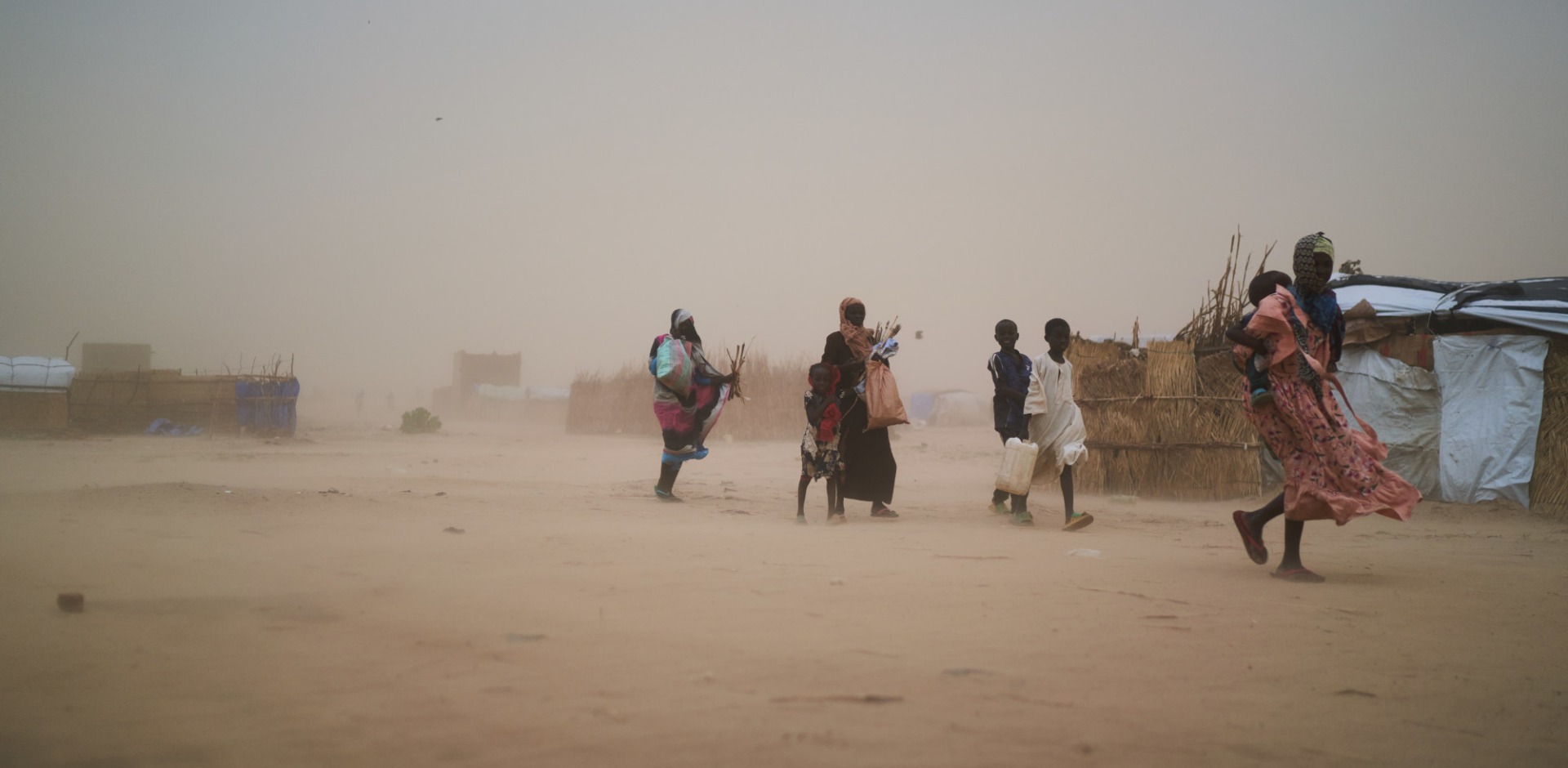
FAMINE IN SUDAN
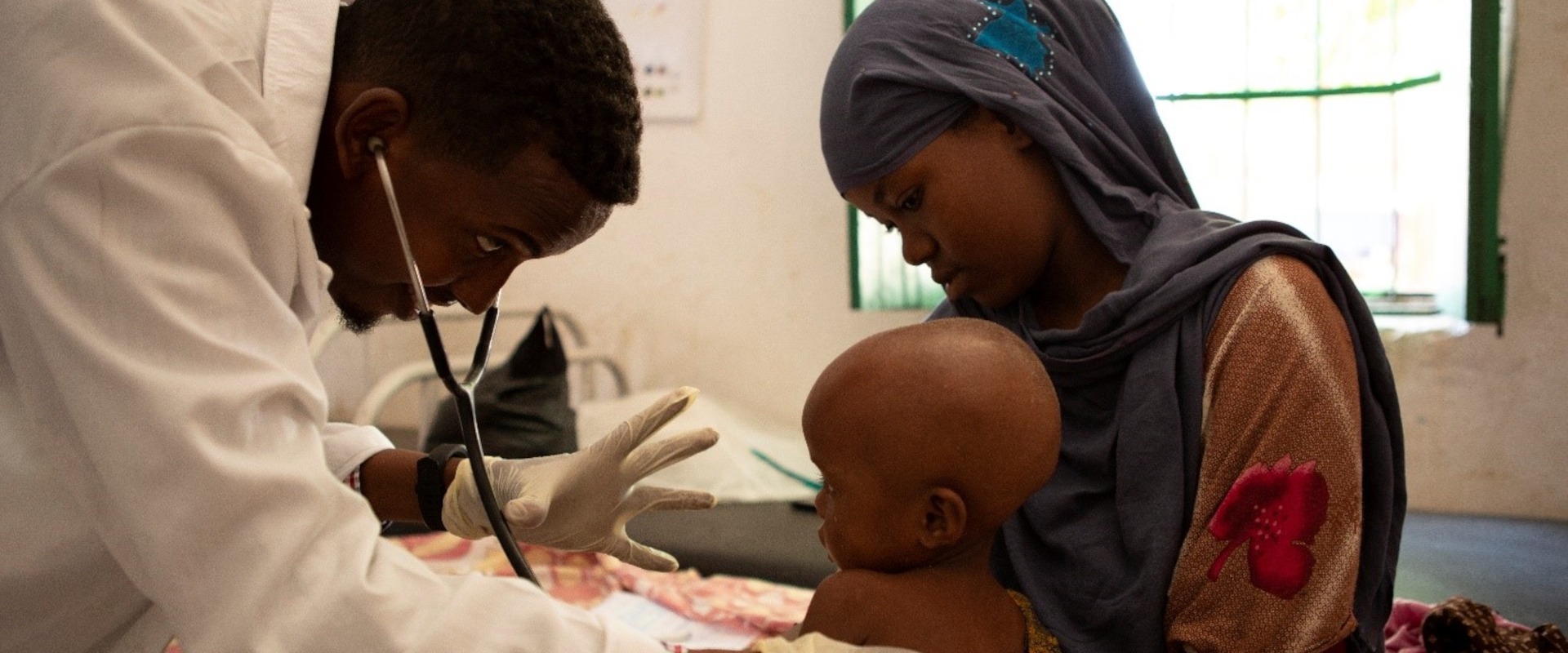
During times of crisis, women and children are particularly vulnerable to hunger. When food is scarce, entrenched gender inequalities and gender norms often mean that girls and women eat last and least, with their nutritional needs taking a back seat to those of men.
Far too many women – especially adolescent girls and women who are pregnant and breastfeeding – are not receiving the nutrition they need to be healthy and give their babies the best chance to survive and grow. When women do not receive the nutrition they need during pregnancy and when breastfeeding, it increases the likelihood of miscarriage, maternal mortality, stillbirth, newborn deaths, low birth weight, and stunting for their babies.
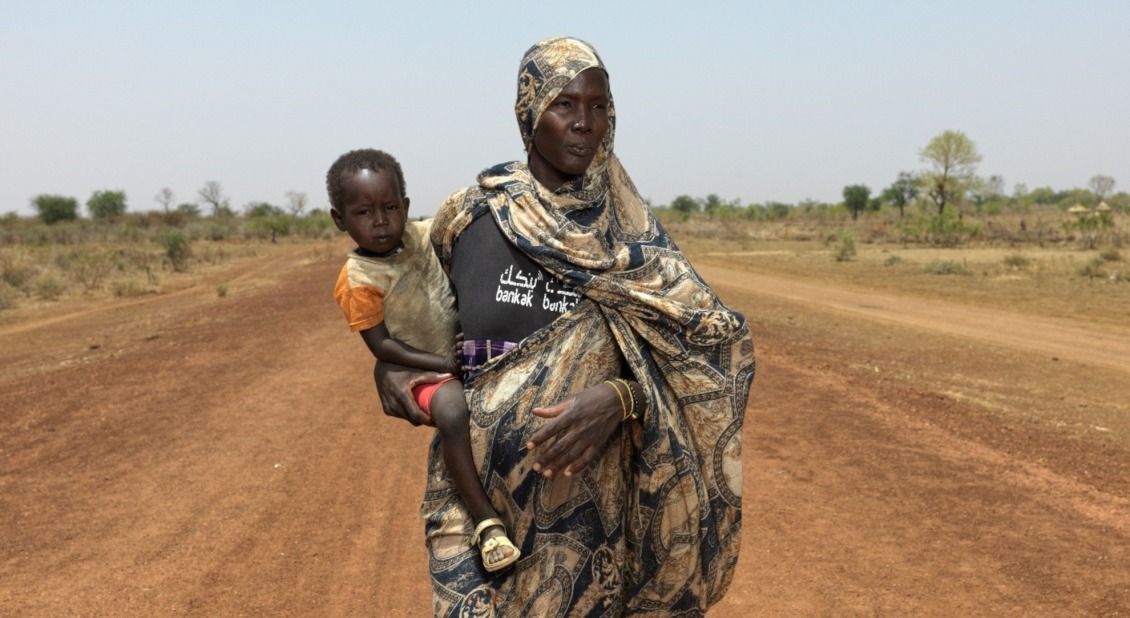
As conflicts, extreme weather events, and rising inequality continue to rise and make nutritious food harder and harder to access, millions of mothers and their children are being pushed deeper into hunger and severe malnutrition.
To address rising malnutrition rates, The Global Emergency Nutrition and Response Program (GENRP), supported by Global Affairs Canada, focused on preventing, detecting, and treating malnutrition among women and children in areas hit hardest by the global hunger crisis.
Like most medical conditions, malnutrition is best addressed and treated when detected early. Mass screenings of children under five and pregnant and lactating women – the groups most vulnerable to undernutrition – are an effective way to identify malnutrition cases and help ensure that those suffering from malnutrition get the critical medical care they need before it’s too late.
Over three years, our GENRP teams screened and referred over 1.2 million women, girls, and boys for malnutrition and provided direct life-saving treatment to over 279,000 people.
A vital part of these efforts was the implementation of mobile clinics that could reach remote, hard-to-access communities and the training of community health volunteers, family members, and caregivers to detect malnutrition in children.
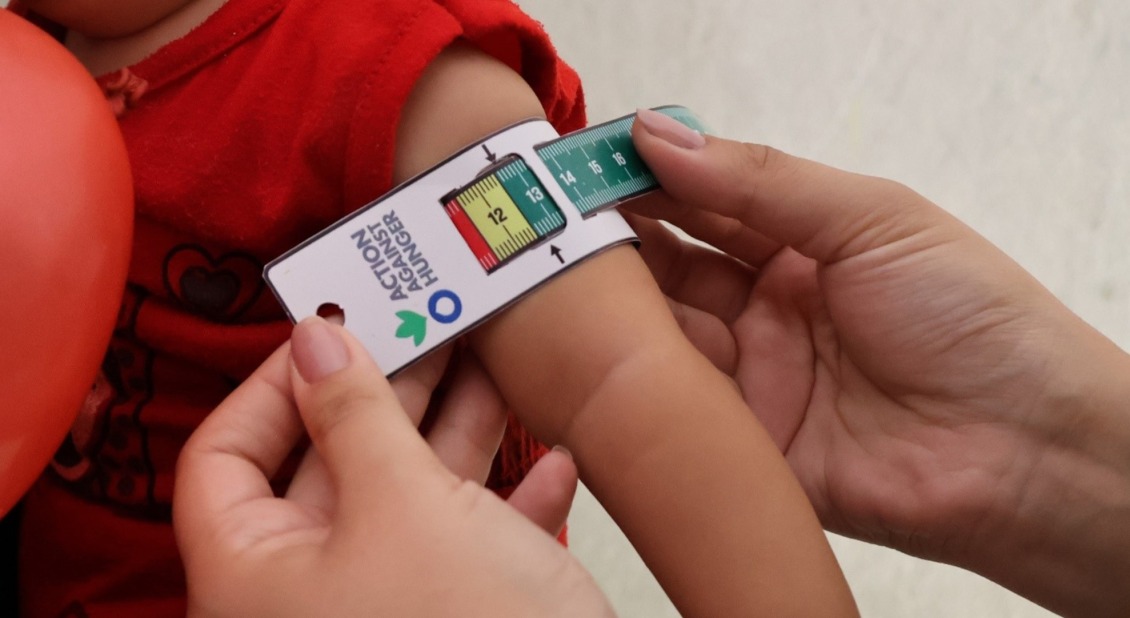
With a simple tool known as the mid-upper arm circumference (MUAC) band, Action Against Hunger gave parents and caregivers the power to identify malnutrition in their children privately at home, without the need for a health professional or a visit to the health center. This way, they can monitor their children’s nutritional status regularly and – if needed – get them treated as soon as possible.
While detecting and treating malnutrition is critical to saving lives, preventing it from occurring in the first place is a foundational part of our work. Many families and communities are vulnerable to malnutrition because they lack essential knowledge about healthy nutrition, pregnancy, and breastfeeding practices. Educational programs are an effective way to spread awareness of good nutrition to families.
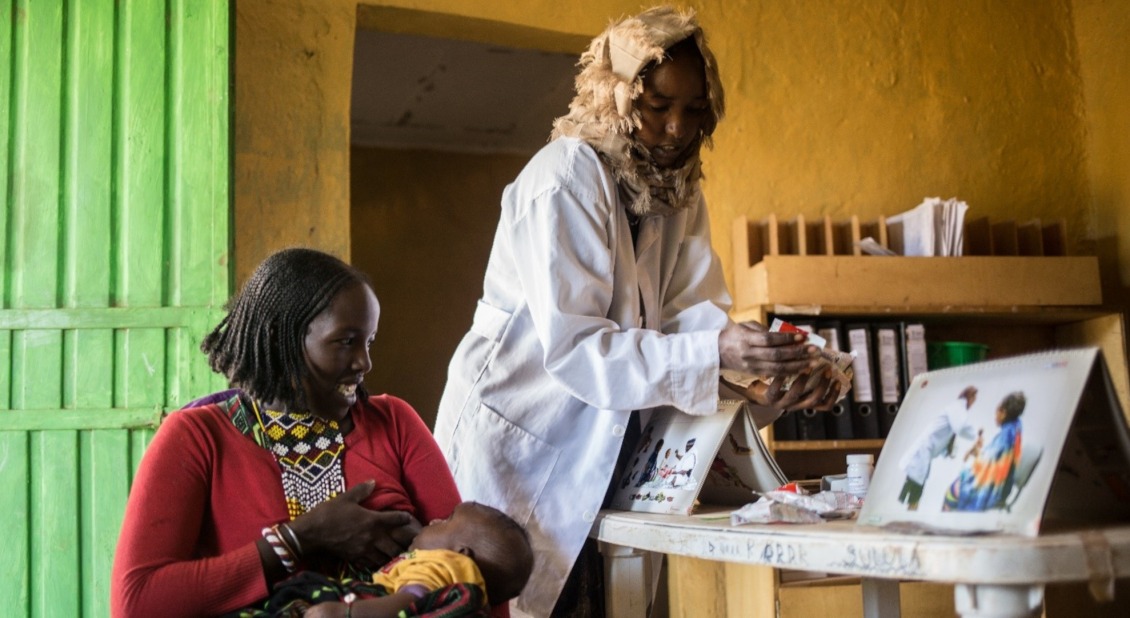
Together with local partners, our GENRP teams provided educational sessions to over 1.2 million people, covering a wide range of topics, from the most nutrient-rich foods to the benefits of breastfeeding. By engaging entire communities in these educational efforts, mothers, fathers, and other caregivers were empowered with the knowledge they need to improve their families’ nutrition and help their children grow up healthy and strong.
Amina, a 23-year-old single mother, anxiously awaited news of her husband, missing in the Syrian conflict. After two years of uncertainty, she received the devastating confirmation of his death, leaving her emotionally shattered. Seeking solace, she moved in with her parents, whose home was already strained by severe financial hardships.
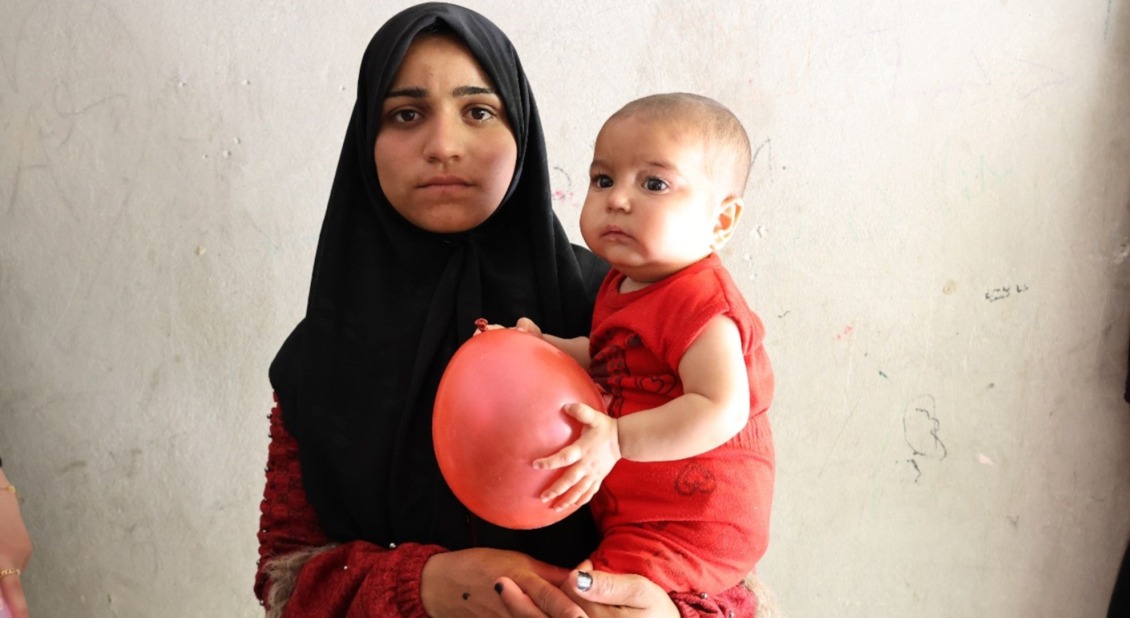
Adding to her worries, Amina noticed that her 2-year-old daughter, Nour, was smaller and less responsive than other children her age, unable to speak or stand. During a visit from our GENRP community health workers, Nour was screened and found to be suffering from severe malnutrition. She was immediately referred to a community-based malnutrition center for treatment.
After a week of care, Nour’s condition improved significantly. She continued to recover under close monitoring, gradually regaining her health.
“After the news of my husband’s death, I felt that I was losing hope. But now, Nour is recovering, and she is in good health. Hope has returned to me and my family,” said Amina.
Over the past five years, the number of people in humanitarian need has steadily risen. Conflict, instability, and climate chaos have made access to affordable, nutritious food incredibly difficult for over 783 million people worldwide.
In response to this crisis, Action Against Hunger Canada, with support from Global Affairs Canada, launched the Global Emergency Nutrition Response Program (GENRP) in 2021. Spanning three years, the GENRP focused on delivering urgent humanitarian aid to 17 countries experiencing prolonged crises, including Ethiopia, South Sudan, Sudan, Syria, and Myanmar.
The program focused on improving nutrition for vulnerable groups by providing healthcare, water, sanitation, hygiene (WASH) services, mental health support, and sexual and reproductive health and rights services. Key to all these interventions was the empowerment of women, who play a decisive role in the health and nutrition of their families.
Join our community of supporters passionate about ending world hunger.